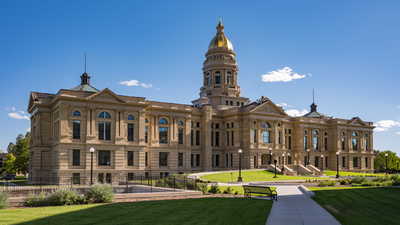
Energy & Environment
How Small Modular Reactor Laws Are Reshaping State Nuclear Energy Policy
January 23, 2026 | David Shonerd
October 27, 2025 | Billy Culleton
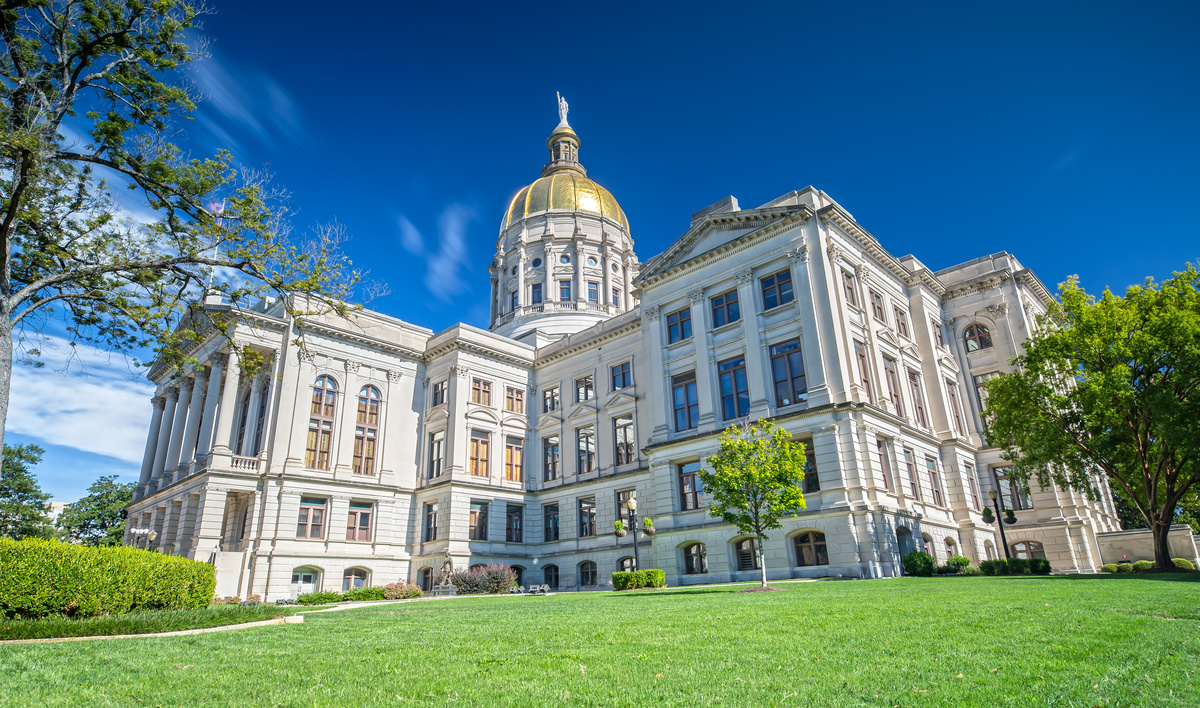
Key Takeaways:
The rising cost of electricity has surfaced in this year’s gubernatorial races in New Jersey and Virginia, where rates have increased 19% and 14%, respectively, over the past year. Much of the country is seeing a similar increase. What’s driving this? Well, as Bill discussed a few weeks ago, “reasons for this are multifaceted and complex,” but one driver is likely to get a majority of the blame: data centers and the AI boom driving demand for them. According to data from the U.S. Energy Information Administration, residential and commercial electricity rates have increased nearly 13% from April 2020 to April 2025.
With energy prices front and center on the voters’ minds, electricity rates will likely be a major factor in 2026’s midterm elections. Yes, we’ll see control of Congress, 36 governor seats, and thousands of state legislative seats up for election next year, but voters will also have a chance to elect members of state commissions that have a direct say in this particular debate: Public Utility Commissions (PUCs).
On November 3, 2026, voters in Alabama, Arizona, Georgia, Louisiana, Montana, Nebraska, North Dakota, Oklahoma, and South Dakota will elect 14 commissioners to serve on their respective state PUC. Mississippi is the only state of the ten states that elects PUC commissioners that will not hold elections next year. These seats could be particularly competitive if energy prices become a prominent issue, and thus we should pay attention to these obscure down-ballot elections.
PUCs, or sometimes called Public Service Commissions (PSCs), serve a quasi-judicial function in ensuring that public utility customers are provided with a safe, reliable, and affordable service. Commissioners often hear rate disputes between investor-owned utilities and customers, issue outage reports after major storms, and review consumer advocate filings. Since they are the go-between providers and customers, PUCs have to balance the rights and needs of the parties that go before them.
The structure and appointments of PUCs vary by state. Most states (47) have a PUC made up of either three to five commissioners serving a four to six year term. Thirty-six states give the governor the authority to appoint commissioners, while only Virginia and South Carolina place the legislature in charge of appointments. Tennessee and North Carolina have a hybrid approach where the governor and legislature are given a set number of seats where they can make appointments.
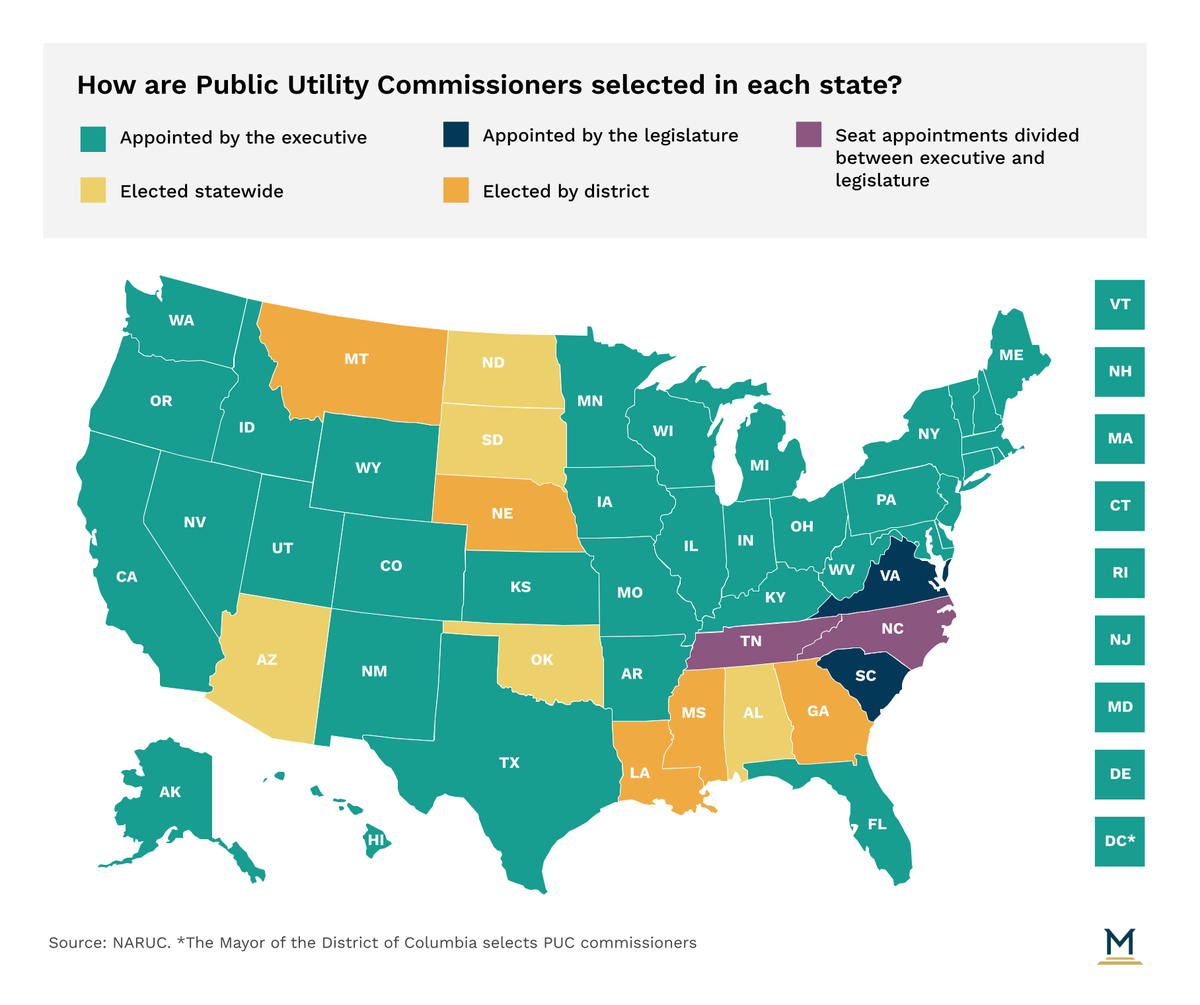
Georgia’s PSC special elections this year for Districts 2 and 3 might provide a preview of what to expect for 2026. Incumbent Tim Echols (R) faces Alicia Johnson (D) in District 2, while incumbent Fitz Johnson (R) faces Peter Hubbard (D) in District 3. Concerns over rate increases from utilities or high-load customers passing costs on to residential ratepayers for grid updates have been the top issues for candidates to weigh in on. Georgia will also hold races in 2026 for PSC commissioners. No candidates have yet declared for those races.
In Louisiana, candidate qualifying will kick off in mid-January for LPSC’s Districts 1 and 5. Voters will decide who will replace Commissioners Eric Skrmetta (R-District 5) and Foster Campbell (D-District 1) as they reach the end of their term limits. Louisiana is fourth in the nation for the highest energy increase at 14.1% and industry plans to build a hyperscale data center in District 5 has already received pushback from local residents.
We’re still a long way from November 2026, and many PUC races still have no declared candidates. Regardless of who will be on the ballot, though, expect there to be increased interest in energy issues as forecasters predict that data centers will use 300% more energy in 10 years than they use today. And as we’ve noted previously, state lawmakers are considering a host of solutions to power data centers, some of which do not involve connecting to the grid.
Ultimately, in most states, the power to shape big picture ideas on energy will rest with state lawmakers and the governor. PUCs are creatures of the state that derive power from statutes. Complaints about energy prices may be directed at PUC commissioners, but state lawmakers hold broader power in increasing generation, updating aging grid infrastructure, and removing red tape from the building process.
This article appeared in our Morning MultiState newsletter on October 21, 2025. For more timely insights like this, be sure to sign up for our Morning MultiState weekly morning tipsheet. We created Morning MultiState with state government affairs professionals in mind — sign up to receive the latest from our experts in your inbox every Tuesday morning. Click here to sign up.

January 23, 2026 | David Shonerd
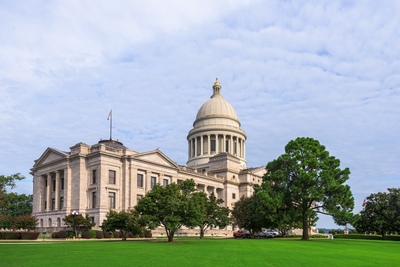
January 23, 2026 | Andrew Jones
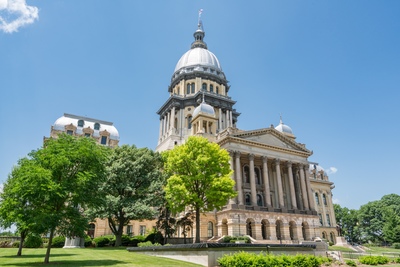
January 22, 2026 | Daniel Kampf